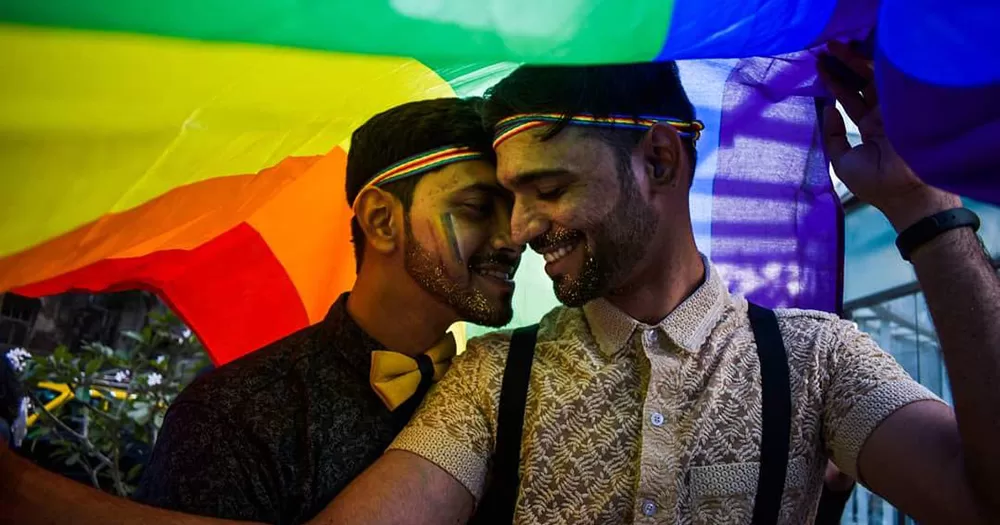The Indian Supreme Court has ruled against legalising same-sex marriage. The decision was announced on Tuesday, October 17, with the country’s chief justice, DY Chandrachud, saying that it is up to Parliament to create such a law.
This comes after the five-judge bench heard 20 petitions earlier this year that all sought to achieve marriage equality. The panel was divided on the matter, with two of the justices in favour of same-sex marriage and three against, giving the opposing side the majority. The bench wrote four separate judgements, and it was ultimately decided that “This court can’t make law. It can only interpret it and give effect to it,” as per the chief justice.
However, in positive news, the right for transgender people in heterosexual relationships to marry under existing statutory provisions was upheld.
“A transgender man has the right to marry a cisgender woman under the laws governing marriage in the country, including personal laws. Similarly, a transgender woman has the right to marry a cisgender man. A transgender man and a transgender woman can also marry,” Chandrachud clarified.
In addition to delivering the ruling on same-sex marriage, the five-judge bench issued another 3:2 verdict in favour of maintaining the ban on non-heterosexual couples jointly adopting children.
Chandrachud, who was one of the two in support of repealing the ban, stated: “The law cannot make an assumption about good and bad parenting and it perpetuates a stereotype that only heterosexuals can be good parents.”
He added, “A queer person can adopt only in an individual capacity. This has the effect of reinforcing the discrimination against the queer community…There is no material on record to prove that only a married heterosexual couple can provide stability to a child.”
As Chandrachud announced the two disappointing rulings for the LGBTQ+ community, he emphasised that queer people should not be discriminated against by the State and directed the government to sensitise the public to LGBTQ+ rights, create safe houses and a hotline for members of the community, and recognise a citizen’s right to enter into a union with their life partner.
Additionally, the court said that the central government will create a committee to decide the rights and entitlements of queer couples, such as access to pensions, gratuity, ration cards, joint bank accounts, and more.
The country’s government has vocally opposed same-sex marriage in the past, declaring that it is not “comparable with the Indian family unit concept of a husband, a wife, and children.”
© 2023 GCN (Gay Community News). All rights reserved.
Support GCN
GCN is a free, vital resource for Ireland’s LGBTQ+ community since 1988.
GCN is a trading name of National LGBT Federation CLG, a registered charity - Charity Number: 20034580.
GCN relies on the generous support of the community and allies to sustain the crucial work that we do. Producing GCN is costly, and, in an industry which has been hugely impacted by rising costs, we need your support to help sustain and grow this vital resource.
Supporting GCN for as little as €1.99 per month will help us continue our work as Ireland’s free, independent LGBTQ+ media.
